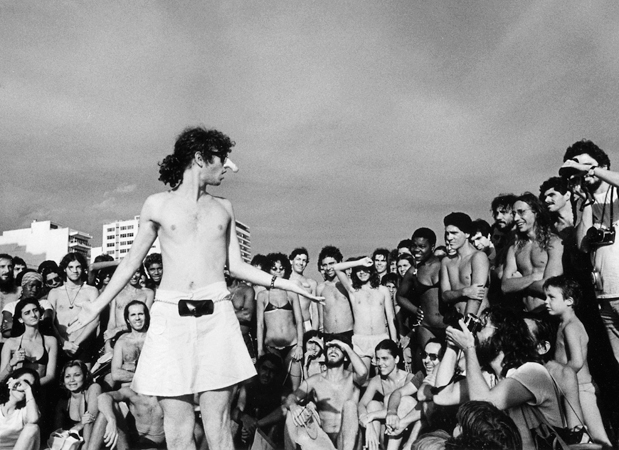So, in my poems of that period, I would take such an expression and I would build a poem around it, so that when you finally arrive at this expression, it doesn’t mean the aggressiveness that it means in typical discourse. So it subverts that ideology by subverting the material instantiation of that ideology in discursive reality. The poems also used humor, not commonly found in serious poetry, to short-circuit and implode the social reality that conservative language produces.
T.H.: I think it’s important to emphasize that we are not speaking about introversive readings of poetry in a very traditional sense, but about a connection of poetry and performance art. So we are touching on both the materiality of the poem and its physical relation to society.
E.K.: Yes, these poems were meant to be yelled out on the streets, not read on a printed page. And because of this presence on the streets, this relationship with the audience of the living body that was presenting the text directly to the reader, to the listener, it involved sound, movement, the body, clothing (such as my pink miniskirt) and the lack of clothing (i.e., nudity), and a lot of other nonverbal elements that became the prosody of the poem. So, being aware of that, I started to bring into the poem additional nonverbal elements that further expanded the richness of the experience, including visual poetry.
